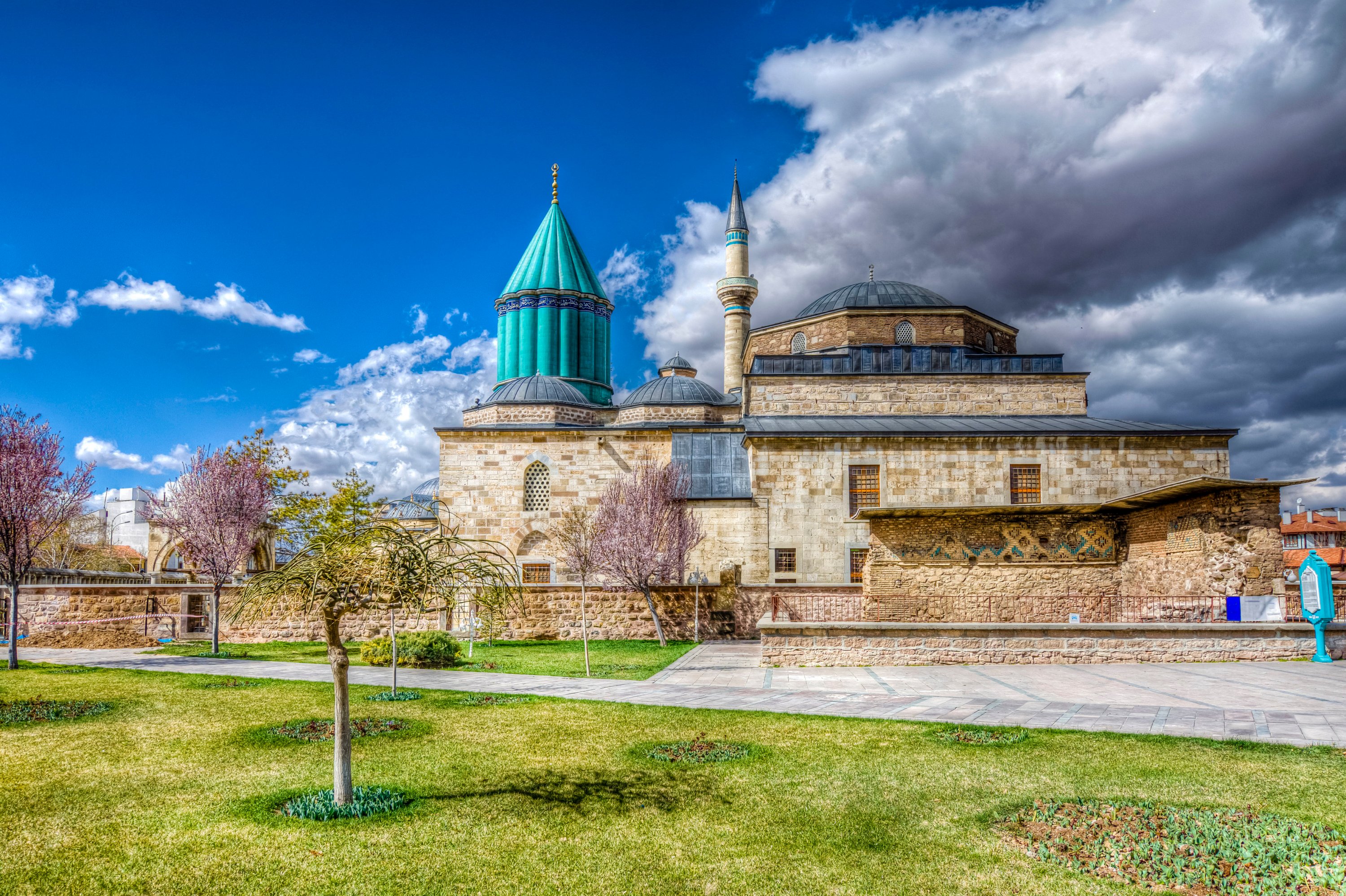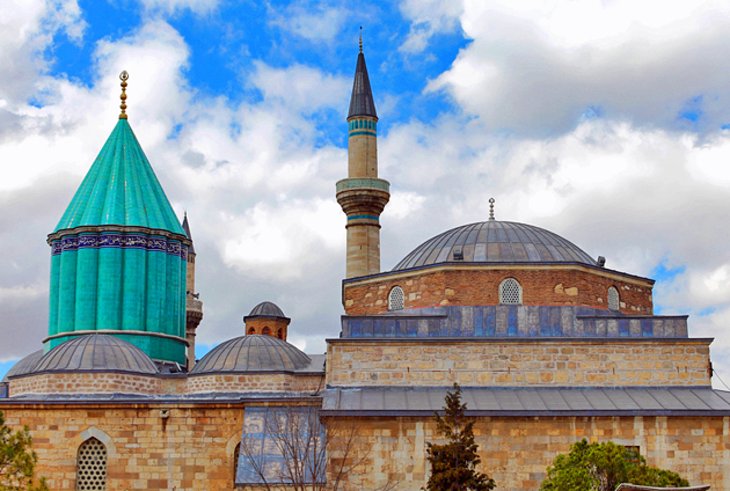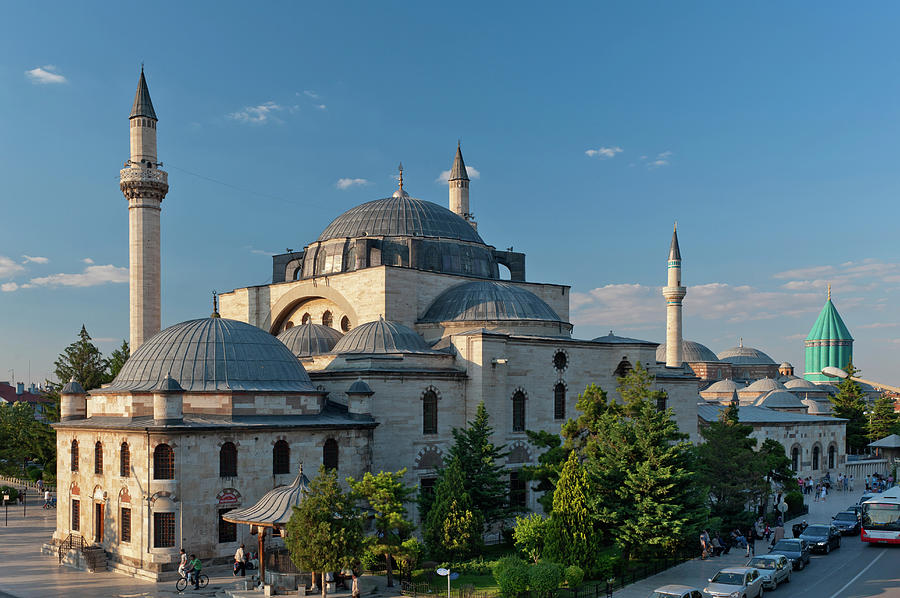Mevlana Museum - Mausoleum of Jalal ad-Din Muhammad Rumi

The Mevlâna Museum, located in Konya, Turkey, is the Mausoleum of Jalal ad-Din Muhammad Rumi, a Persian Sufi mystic. It was also the dervish lodge (tekke) of the Mevlevi order, better known as the whirling dervishes. Sultan 'Ala' al-Din Kayqubad, the Seljuk sultan who had invited Mevlâna to Konya, offered his rose garden as a fitting place to bury Rumi's father, Baha' ud-Din Walad (also written as Bahaeddin Veled), when he died on 12 January 1231. When Mevlâna died on 17 December 1273 he was buried next to his father.

Mevlâna's successor Hüsamettin Çelebi decided to build a mausoleum (Kubbe-i-Hadra) over the grave of his master. The Seljuk construction, under architect Badr al-Din Tabrizi, was finished in 1274.

Gurju Khatun, the wife of the Seljuk Emir Suleiman Pervâne, and Emir Alameddin Kayser funded the construction. The cylindrical drum of the dome originally rested on four pillars. The conical dome is covered with turquoise faience.
Video: Mevlana Museum - Mausoleum of Jalal ad-Din Muhammad Rumi
Map: Mevlana Museum - Mausoleum of Jalal ad-Din Muhammad Rumi
Address: Aziziye Mah, Mevlana Cd. No:1, 42030 Karatay
Konya (Turkey)
Latitude: 37.870652726398454
Longitude: 32.504950761795044
Site: http://www.mevlanamuzesi.com/...
vCard created by: CHO.earth
Currently owned by: CHO.earth
Type: Monument
Function: Museum
Creation date: 13-04-2021 06:07
Last update: 09/08/2023